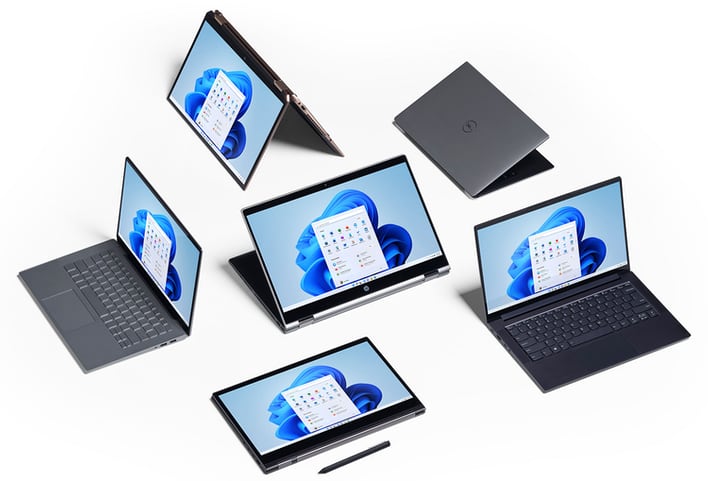Microsoft Adds More CPUs To Windows 11 Compatibility List, Describes Workaround For Older PCs

Microsoft previously stated that it would only support 8th generation Intel Core and Ryzen 2000 and newer processors. However, the company later stated that it would investigate the inclusion of 7th generation Core and Ryzen 1000 processors. After consulting with AMD, Microsoft says that both companies decided not to add first-generation Ryzen 1000 processors to the compatibility list. However, Microsoft and Intel concluded the following 7th generation processors are officially supported:
- Intel Core X-series
- Intel Xeon W-series
- Intel Core i7-7820HQ
For those that need a refresher, these are Microsoft's current minimum specs for Windows 11:
- Processor: 64-bit capable 1GHz processor (dual-core or better)
- RAM: 4GB
- Storage: 64GB
- System firmware: UEFI, Secure Boot capable
- TPM: Trusted Platform Module (TPM) version 2.0
- Graphics card: DirectX 12 compatible or later with WDDM 2.0 driver
- Display: High definition (720p) greater than 9 inches diagonally, 8 bits per color channel
However, the CPU restrictions are only in place if you upgrade from Windows 10 to Windows 11. A lesser-known fact is that Microsoft will allow customers to install Windows 11 with an unsupported processor if the user performs a clean install using an ISO. So although checks will still be in place to ensure that TPM 1.2 is supported, you'll be able to install Windows 11 on a Ryzen 7 1800X processor, for example.
Microsoft isn't widely publicizing this loophole and says that it is unsupported by the company. The company attempts to drive this point home by stating that "Devices that do not meet the minimum system requirements had 52% more kernel mode crashes. Devices that do meet the minimum system requirements had a 99.8% crash-free experience."
We'd imagine that if a PC user is skilled enough to clean install Windows 11 with an ISO to use unsupported processors, they're adept enough to handle the potential downsides that could come with that decision.

